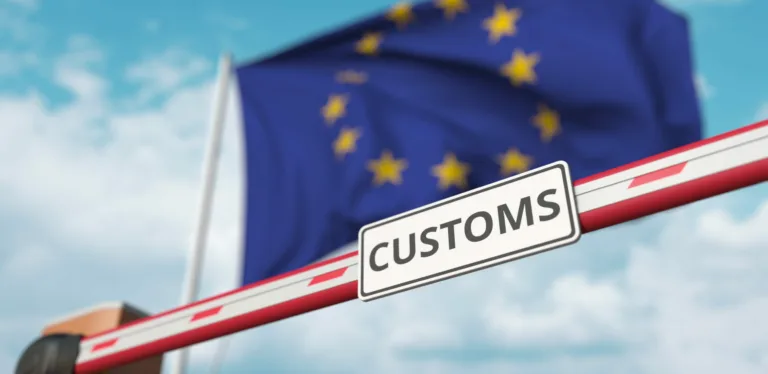A well-designed EU trade policy is crucial to the European chemical industry
The world as we know it is evolving rapidly. With an increasingly complex and uncertain geopolitical and economic landscape, EU trade policy needs to adapt to maintain the EU’s long-term competitiveness, as highlighted in the Antwerp Declaration. As export-oriented EU industry with a significant trade surplus of €35 billion per annum (2023), the importance of a well-calibrated EU trade policy for the European chemical industry can hardly be overestimated.
To be successful, EU trade policy thus needs to be free, fair, sustainable and resilient and aligned with the European industrial strategy. For this to be successful, Cefic calls for:
- Open and deepen access to third-country markets: Focus on reducing tariffs and non-tariff barriers, enhancing regulatory cooperation, and fostering mutual trade liberalisation on the bi-, pluri-, and multilateral level to promote growth and diversification.
- Address market distortions: Tackle unfair trade practices and market distortions that harm EU industries by strategically using the EU’s trade instruments.
- Economic security and resilience: Improve the EU’s economic resilience against trade weaponisation by implementing precise and proportionate measures. Focus needs to be on ‘de-risking not de-coupling’, using where possible data-driven and risk-based approaches.
- Strengthen regulatory cooperation: Improve regulatory cooperation by ensuring non-discriminatory, transparent, and predictable trade conditions to help EU industries compete fairly in global markets.
- Acting in unity: Strengthen the EU’s ability to act as a block by pursuing a trade policy not beholden by competence struggles.
More on Cefic’s views on EU Trade Policy
5 Steps to an effective policy for free trade agreements
- Conclude and ratify FTAs with key trading partners, notably, the USA, Mercosur, India, Association of Southeast Asian Nations (ASEAN) and Africa and pursue further market opening with China.
- Strong focus on reducing non-tariff barriers: while tariff barriers have decreased, non-tariff barriers create severe disadvantages for European companies in FTAs partners’ markets and beyond. Reducing non-tariff barriers is key for European companies’ access to these markets.
- Add to all FTAs a dedicated annex for regulatory cooperation on chemicals.
- Add in all FTAs a dedicated Energy and Raw Material chapter aiming to grant the EU preferential access to key raw materials and energy carriers (e.g., hydrogen).
- Make the Trade and Sustainable development chapter more business conducive and include the implementation of UN Globally Harmonized System of Classification and Labelling of Chemicals (GHS) in the scope.
More on Cefic’s views on Free Trade Agreements
Addressing unfair trade practices and fostering economic security
EU trade policy is also key to actively address market distortions caused by third parties that negatively affect EU industries and the EU economy at large. To address market distortions, EU trade policy should make smart, strategically oriented use of its ‘toolkit’ of new and traditional trade instruments applying fair, legitimate WTO consistent procedures while being mindful of the overall impact on competitiveness and value chains and production networks. In this context, it must be clear that the loss of competitiveness cannot be addressed by trade policy instruments alone and that a close interlinkage with industrial policy including energy policy is key.
The resurgence of great power rivalry has led to new economic policies aimed at strengthening the EU’s resilience. Cefic stresses this objective if it is implemented based on the principle of ‘de-risking not decoupling’. Efforts to improve the EU’s economic security must be wherever possible datadriven and risk-based. It is about risk-management, not risk-minimisation. And it is first and foremost the obligation of companies to adapt their value chains and production networks to changing risks, not of governments. When designing and implementing the necessary policy instruments the EU needs to carefully assess trade-offs and align with broader policy objectives and costs.
Ensuring trade controls for chemicals
The chemical industry is committed to safe, secure, responsible, and sustainable production and use of chemicals. The Chemicals Strategy for Sustainability (CSS)calls for action to ensure that hazardous chemicals banned in the European Union (EU) are not produced for export. Cefic asks that the action is implemented in a way that substantially contributes to both the protection of health and the environment, particularly in third countries while ensuring a global level playing field.
Download the Cefic views on the EC initiative “Hazardous chemicals – prohibiting production for export of chemicals banned in the European Union”
The arrival on the market of so-called designer-precursors, being used to produce illegal drugs, in the past 10-15 years is another challenge to EU lawmakers and authorities . At the same time, illicit online trade in sensitive substances and an outdated, paper-based implementation system reinforce the need for modernised approaches on drug precursors. Therefore, the European Commission intends to update the existing EU regulation on drug precursors. In support of the Commission’s efforts, Cefic outlines 6 top recommendations in a view paper submitted to the public consultation in July 2024.
Download the Cefic View Paper on the revision of the EU Drug Precursor regulations
Bringing the Customs Union to the next level
Customs play a vital role for the EU. They are the first line of defence to ensure a level playing field. Cefic proposes 5 steps to achieve a current customs system fit for purpose in the 21st century. To achieve the best results, these measures should be implemented fast, be accessible to both large multinational and small-medium-sized enterprises (SMEs) and be harmonised across member states.













